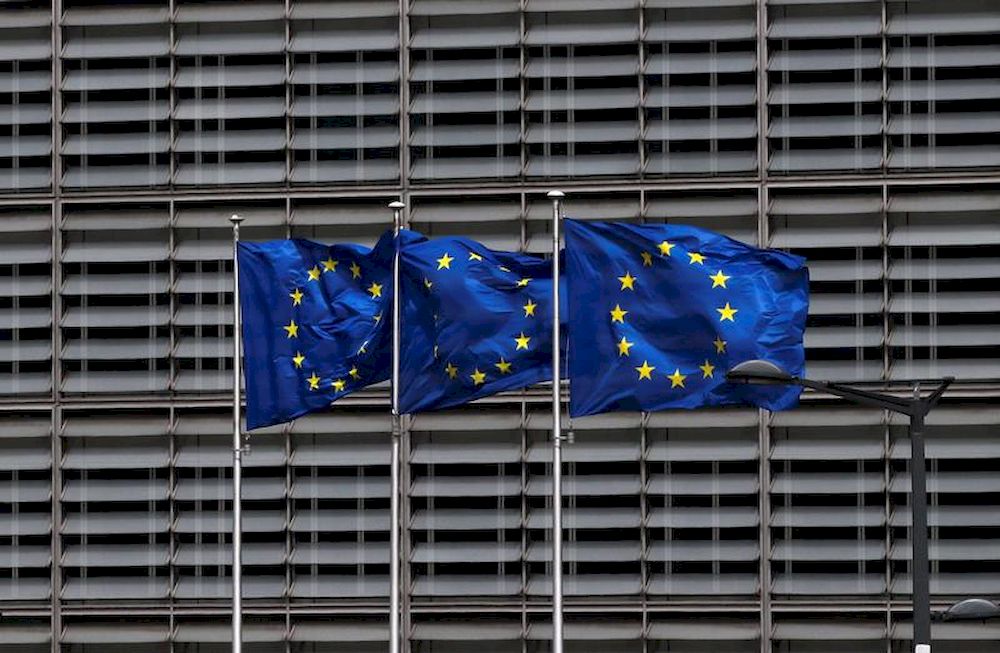European Union flags flutter outside the EU Commission headquarters in Brussels, Belgium May 5, 2021. — Reuters pic
BRUSSELS, Oct 6 — EU leaders today refused to set a timeline for granting the Western Balkan nations membership, despite reassurances to the region the bloc remained committed to letting them join.
Brussels is keen to show it remains the best hope for its neighbours in the face of growing worries that frustration with years of waiting could push some candidate countries closer to Russia and China.
But there were no breakthroughs at the meeting with the leaders of Albania, Bosnia, Serbia, Montenegro, North Macedonia and Kosovo on the tortuous path towards membership.
The 27-nation club instead talked up economic support worth billions of euros for its eastern neighbours at a rain-drenched summit at Brdo castle in Slovenia, which currently holds the EU’s rotating presidency.
“The Western Balkans is part of the same Europe as the European Union. We share the same history. We share the same interests, the same value values and I’m deeply convinced, also the same destiny,” European Commission chief Ursula von der Leyen said.
“The European Union is not complete without the Western Balkans.”
‘Geostrategic interest’
The EU’s push for enlargement — once a key policy for the bloc — has ground to a halt in recent years. Some richer members fear sparking a new wave of migration and some applicants are struggling with the required reforms, especially on democratic norms.
A final declaration from the summit said after much haggling that the bloc “reconfirms its commitment to the enlargement process”.
But it also said that the EU had to first “deepen its own development, ensuring its capacity to integrate new members”.
That came after members states rejected a demand by host Slovenia to commit to absorbing the aspirants from the Western Balkans by 2030.
German Chancellor Angela Merkel said that she was opposed to setting a deadline for the membership process that “puts us under pressure in the end”.
But she still insisted the EU had an “immense geostrategic interest” in letting the Western Balkans in eventually.
This reflected the EU’s increasing concern over inroads being made by Moscow and Beijing, which have sent millions of coronavirus vaccines to the region.
Moscow has deep cultural ties with fellow Orthodox nations while Beijing has extended major loans in the region, including a controversial US$1 billion for a road, which Montenegro is struggling to pay off.
The EU in response touted an “unprecedented” 30 billion euros (US$35 billion) economic investment package for the region.
Officials also promised “tangible” improvements for people in the Balkans, such as bolstering vaccine rates to match EU levels this year and ending phone roaming charges.
This may be cold comfort to the candidate countries who are still smarting after France, Denmark and the Netherlands initially held up accession talks with Albania and North Macedonia in 2019.
Bulgaria has since become the main obstacle to progress, refusing to let North Macedonia start the process because of a dispute over history and language.
The leaders of the two countries met together with counterparts from France and Germany, but no progress was made ahead of elections in Bulgaria next month.
‘No illusions’
“I have no illusions about a quick accession to the EU,” said Serbian President Aleksandar Vucic, whose country applied for EU membership in 2009.
“The political needs of the EU are such that Balkan enlargement is neither a dominant nor a popular issue.”
Brussels scored a minor diplomatic victory in the run-up to the summit by mediating a deal to ease a flare-up in tensions between Serbia and Kosovo.
The former foes were at loggerheads after Kosovo banned cars with Serbian registration plates from entering its territory.
Kosovo proclaimed independence from Serbia in 2008 a decade after a war between independence-seeking ethnic Albanian guerrillas and Serbian forces.
Roughly 100 countries, including all but five EU members, recognised the move, but not Serbia or its allies China and Russia.
EU-brokered dialogue between the two Balkans neighbours, launched a decade ago, has failed to achieve normalisation of their ties. — AFP

